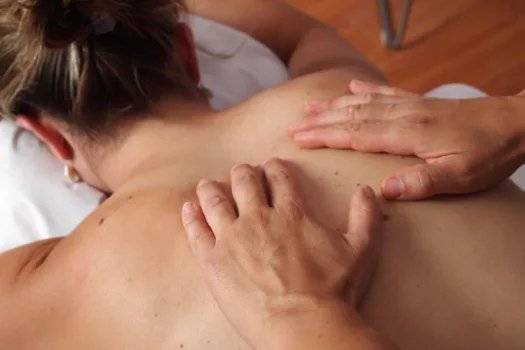Massage treatment is frequently connected with physical advantages, including relaxation, pain alleviation, and muscle rehabilitation. According to Mantis Massage, this therapy can make you feel new by impacting your deep tissues. Whether you have a desk job or are having headaches after an accident, a good massage can help alleviate all those symptoms.
However, its influence goes well beyond the physical, providing significant advantages to mental health. In a world where stress, anxiety, and depression are increasingly prevalent, it provides a holistic approach to mental well-being.
This article investigates the mind-body relationship and discusses how massage treatment might benefit mental wellness.
The Connection Between Body and Mind
To understand how massage therapy can improve mental health, it's essential to recognize the deep connection between the body and mind. This relationship is well-documented in ancient practices and modern science. When the body relaxes, the mind follows, and vice versa.
Conversely, physical tension can exacerbate mental stress, creating a vicious cycle. This treatment intervenes in this cycle by promoting relaxation and alleviating physical discomfort, fostering mental tranquility.
As stated in a Psychology Today article, massage appears to influence brain activity in ways that promote relaxation while remaining attentive. Some research suggests that the brain's somatic sensory pleasure pathway may possibly be involved. It also seems to have a favorable effect on the HPA axis (hypothalamic-pituitary-adrenal) and neurohormone levels, including the “bonding” hormone oxytocin.
This can be extremely beneficial for people suffering from mental health problems. Consider the example of Austin, Texas, where the mental health crisis, especially among youths, is growing. According to the government website, suicide among youths has increased by around 65% in the past five years.
To cope with the problem, Austin Public Health (APH) and Integral Care have launched the “Ask, Listen, Talk, Repeat” campaign. Massage therapy can be an addition to the strategies for coping with the mental health crisis.
The effect on mental health will depend on the quality of the massage you receive. As a result, it is essential to identify a reputable local therapist who can assist you in reducing muscular tension. Hiring local therapists is emphasized because it will give you quick access to their services. So, considering the example above, you can look for professionals to get a massage in Austin.
Reducing Stress and Anxiety
One of the most important mental health advantages of this therapy is its capacity to alleviate stress and anxiety. Stress, a typical characteristic of modern life, initiates a series of physiological responses, including the release of cortisol, the body's major stress hormone. Elevated cortisol levels can cause a variety of health problems, including anxiety, sadness, and sleeplessness.
It reduces stress by activating the parasympathetic nerve system, sometimes known as the “rest and digest” system. This activation lowers cortisol levels while increasing the synthesis of serotonin and dopamine, neurotransmitters linked with emotions of well-being and enjoyment. Studies have shown that using it regularly can significantly lower cortisol levels and promote a more balanced mood.
For example, a PubMed meta-analysis of seven studies investigated the impact of massage treatment on pain and anxiety in patients with severe burns. These trials involved 733 people with burns. It was found that adding it to the treatment regimen significantly reduced the anxiety intensity in these patients.
Alleviating Symptoms of Depression
Depression is another mental health condition that can benefit from this treatment. While it is not a cure for depression, massage therapy can serve as a complementary treatment that helps alleviate its symptoms.
The tactile stimulation provided by it increases the levels of serotonin and dopamine, similar to its effects on anxiety. Additionally, the physical touch involved in it fosters a sense of connection and support, which is beneficial for individuals experiencing depression. Human touch, often lacking in the lives of those with depression, can convey empathy and care.
A study from ResearchGate shows how it impacts depression in elders. The study was conducted on 38 seniors living in nursing homes. There were three aromatherapy massage sessions given to the participants every week. This reduced the mean depression rate from 9.94 ± 3.2 to 4.15 ± 2.14, showing significant results.
How to Find a Massage Therapist for Your Mental Health Needs
First, consider asking friends, family, or healthcare providers for recommendations. Personal references can give vital information about the therapist's professionalism, tactics, and efficacy.
Next, conduct online research to identify massage therapists in your area. Look for therapists who have positive internet reviews and testimonials. Websites like Yelp, Google Reviews, and specific health and wellness forums can be useful resources.
Consider the massage practice's location and ambiance. A convenient location in a relaxed and professional setting can improve the whole experience. Visiting the facility beforehand, if possible, can help you gauge the cleanliness and comfort level of the space.
Location is also crucial for easy access to the therapist when required. For instance, suppose you live in Austin but have a therapist in Houston or Dallas. In that case, you must travel a long distance each time you want to visit your service provider. Therefore, massage therapy in Austin is advised instead of going elsewhere in such a scenario.
Frequently Asked Questions
What is the best massage for mental health?
This type of treatment can improve mental health, and techniques such as Swedish massage and aromatherapy are advised. These strategies can assist with stress, anxiety, and depression by fostering relaxation and releasing tension in the body.
How may massage treatment benefit human health?
It can help with various health concerns by increasing circulation, relieving muscular tension, and fostering relaxation. It can alleviate pain, enhance flexibility, and boost overall health. It has also been demonstrated to boost the immune system and aid in the recovery from various disorders.
Can massage enhance brain function?
According to research, massage therapy may improve brain function. It can help lower stress hormones, boost neurotransmitters involved in mood control, and enhance general cognitive performance. Regular treatment may also improve focus, memory, and mental clarity.
What are the primary benefits of massage therapy?
Massage therapy has several advantages, including stress reduction, pain alleviation, better circulation, and increased relaxation. It can also improve sleep, relieve muscular tension, and elevate mood.
To conclude, massage therapy is a powerful tool in mental health care. Its ability to reduce stress, anxiety, and depression makes it a valuable addition to any mental health routine. Massage therapy offers a holistic approach that promotes lasting transformation by addressing health's physical and mental aspects.
As more people recognize its benefits, massage therapy will likely become integral to mental health care. Whether dealing with chronic conditions or simply seeking a way to enhance your overall well-being, massage therapy can be a profound experience.
Follow me down the rabbit hole!
I'm Alice and I live with a dizzying assortment of invisible disabilities, including ADHD and fibromyalgia. I write to raise awareness and end the stigma surrounding mental and chronic illnesses of all kinds.








